State of the Game finds Premier League 'a third English'
- Published
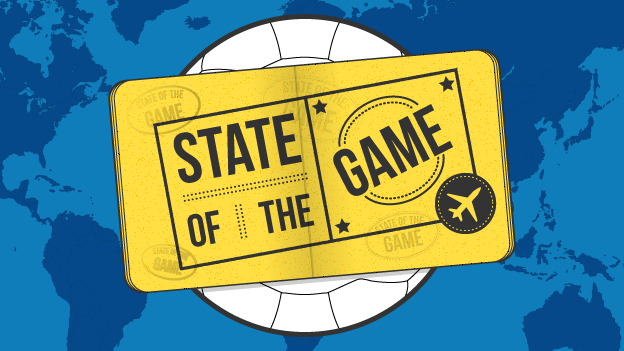
English players are getting more minutes in the Premier League this season but make up just over a third of time spent on the pitch, a BBC Sport study has found.
The rise, from 32.36% of total playing time in 2013-14 to 36.08% until 1 October, can be solely attributed to newly promoted Burnley, who used just one non-UK player.
The State of the Game: How Burnley buck Premier League trend
Take away the Clarets and the second annual State of the Game study found restricted opportunities for English players at the top clubs.
State of the Game comes six months after Football Association chairman Greg Dyke announced his plan to get more English players playing in the Premier League with the ultimate aim of winning the 2022 World Cup.
Former Chelsea player Michael Woods, signed by Jose Mourinho aged 16 in a £5m deal but now 24 and playing for Hartlepool, called for an English player quota to give domestic players a chance.
But BBC Sport pundit Robbie Savage said if you were "good enough you will make it", while former England boss Graham Taylor said the "foreign influx could not be stopped".
Click here for an interactive guide to all the data from the State of the Game study
The key stats
Arsenal, Chelsea, Manchester United, Tottenham and champions Manchester City used the most non-UK players in the league.
Argentines were the big movers, up to the third most represented non-UK country after France and Spain, and now outnumber Welsh players in the Premier League.
The 2013-14 top eight used 44 new signings this season during the matches analysed by the study - and 33 were foreigners.
A quarter of the 373 foreign players in the top flight played fewer than 10 games last season.
Burnley used the most English players (13) while Chelsea, Stoke and Man City each used the least (three).
In 2013-14 just five English players took part in all 38 matches.
The study analysed the total minutes played by each nationality in the Premier League, Championship and Scottish Premiership to 1 October, as well as last season's data.
The British picture
Scottish players had more time on the pitch in the Premier League this season, up from 3.68% to 4.87%, the fourth highest total.
Wales slipped to 10th, down from 3.11% to 2.45% of playing time, while Northern Ireland came 13th after a fall from 1.79% to 1.53%.
In the Scottish Premiership, Scottish players spent fewer minutes on the pitch, from 55.66% to 50.78% of the total.
England's Championship saw the percentage of minutes by English players fall to 46.38% from 52.11% last season.
Why it matters
September 2013 FA Commission is set up on how to improve the national team's fortunes. Aim set for 45% of Premier League players to be English by 2022. England last at this level in 2000. It was 69% 20 years ago.
Watch goals by top foreign stars from the Premier League
May 2014 Four-point plan is put forward by FA: a new tier within the Football League for Premier League B teams, a reduction of non-homegrown players in squads from 17 to 12, a cap on non-EU players and "strategic loan partnerships" between clubs.
June 2014 England are knocked out of the World Cup at the group stage for the first time in 56 years.
September 2014 Close of a record transfer window, with Premier League clubs spending £835m, with 63% of that going on foreign stars. FA releases draft proposals to reduce the number of non-EU players by 50% through tighter visa controls.
Foreign players a 'ready-made excuse'
Robbie Savage, BBC Sport pundit: "The easiest thing to say is that, if an English player or a British player doesn't make it, his excuse is 'well, they bought a foreign player'. It is a ready-made excuse.
"You are not telling me now that if Everton had bought a youngster from a foreign club that would have stopped Ross Barkley from coming through?"
Dan Jones, partner at accountants Deloitte UK's Sports Business Group: "It's a virtuous circle. You have the best TV deals, which gives clubs the ability to bring the best players here.
Premier League foreigners used as excuse when English players don't make it, says Robbie Savage
"Because the best players are here, more people watch on TV which means the TV deal goes up. The Premier League has been in that circle for at least the last 15 years if not 20."
Graham Taylor, former England boss: "We have to understand we are not going to stop the foreign influx in our game, particularly with European laws.
"When I was manager I could see a game and 15 or 16 on the pitch were English, now it is the other way around."
'There should be an English player quota'

Michael Woods, who left Chelsea in 2011 without making a league appearance: "I don't think introducing three English players in each team would detract from the Premier league being the best in the world. You're still going to have your Sergio Agueros, your Luis Suarezes."
Click here to read Woods tell his story in intimate and emotional detail.
Sean Dyche, Burnley boss: "[The number of English players at Burnley] is not done by design. Nowadays you need a more European-based recruitment staff and we've had to build that.
"The challenge has been more financial than the actual thought of whether they are British players or not."
Germany: We don't buy foreign for the sake of it

Study group the CIES Football Observatory last week reported that Europe's big five leagues had an average foreign player ratio of 45.9%, with Ligue 1 at 31.6%, Spain 38.9%, Germany 43.5% and Italy 54.8%.
According to State of the Game, the Premier League's non-UK ratio is 55.07% and 63.92% for non-English.
In 2002, German officials launched an overhaul of their youth system, an intervention heralded as a key moment in their journey to winning the 2014 World Cup.
Lutz Pfannenstiel, first-team scout at Bundesliga club Hoffenheim, said: "We were like other European countries, signing foreigners for the sake of it. When we restructured we decided as a country to go for young players and if possible German.
"Now any player from another country has to be absolutely outstanding. We no longer see the point in taking a player we can maybe find at the same level in Germany."
State of the Game at-a-glance
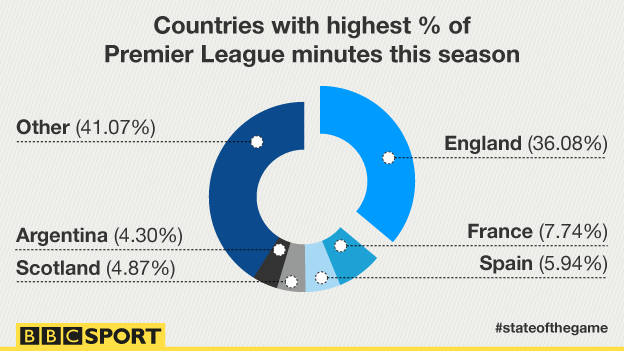
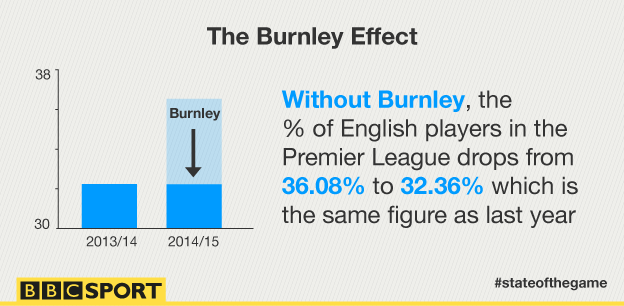
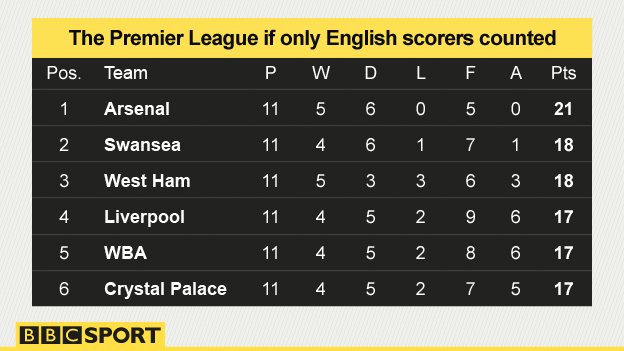
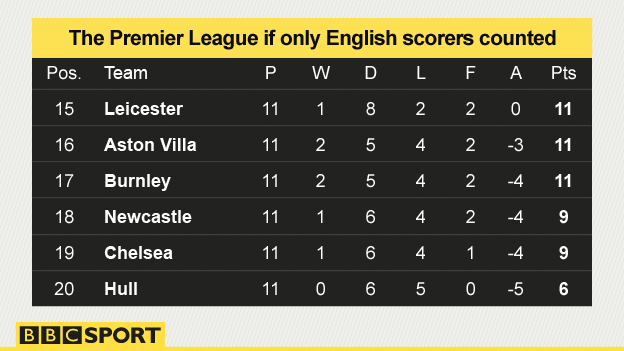
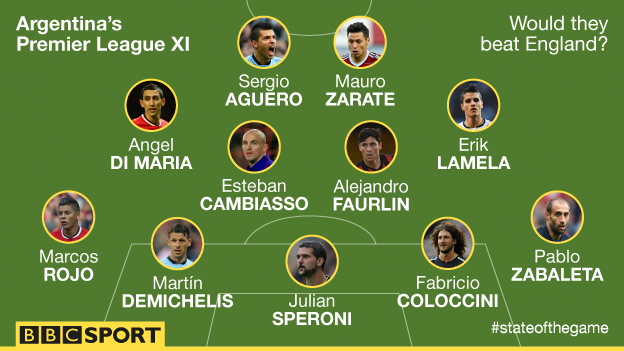
- Published20 November 2014

- Published20 November 2014
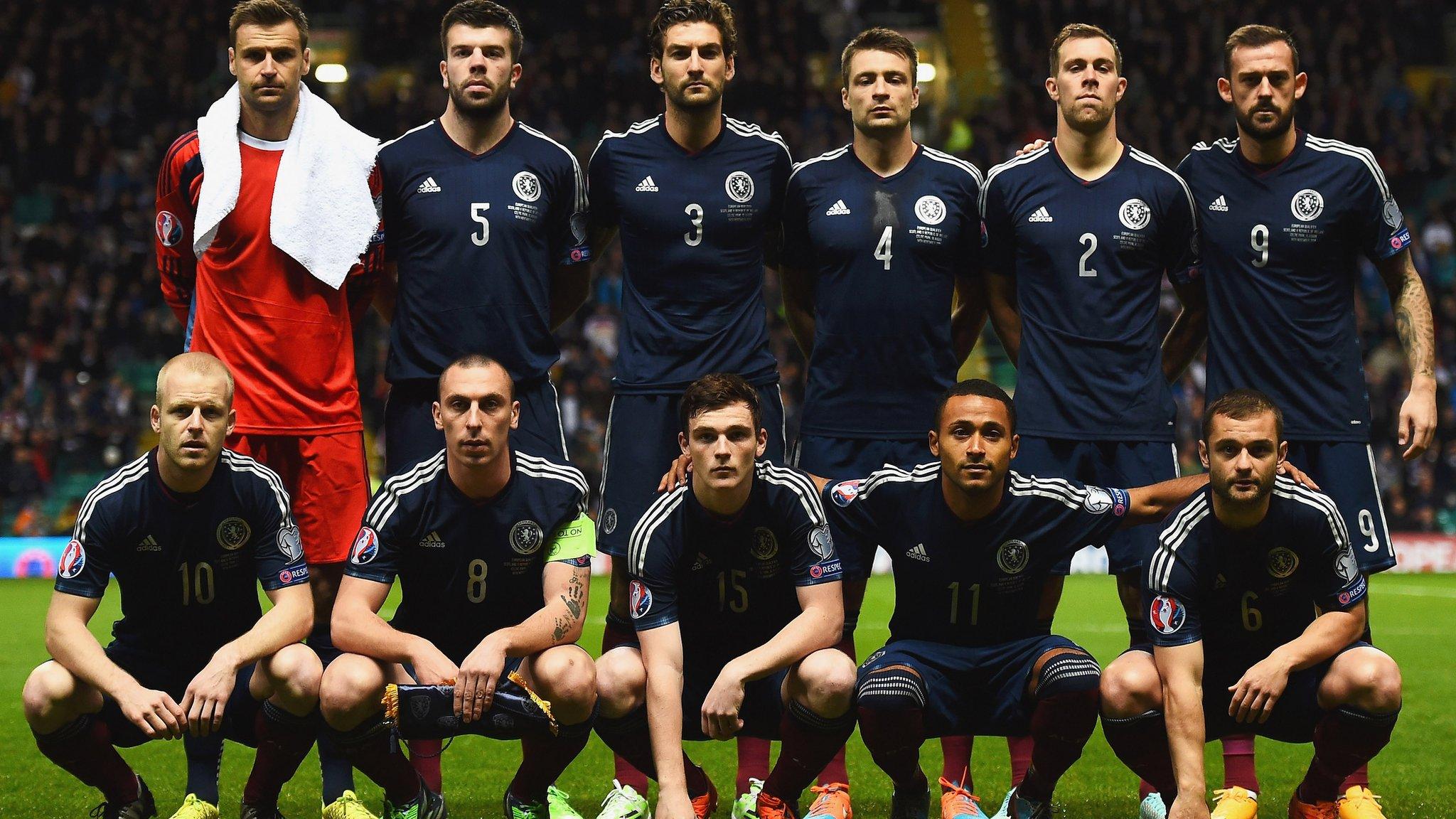
- Published20 November 2014

- Published20 June 2016

- Published7 June 2019

- Published2 November 2018
